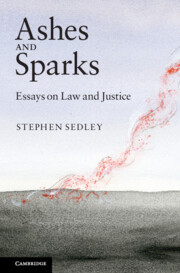Book contents
- Frontmatter
- Contents
- Preface
- Acknowledgements
- PART I History
- 1 Victors' justice
- 2 Above it all
- 3 Reading their rights
- 4 From victim to suspect
- 5 Farewell sovereignty
- 6 No law at all
- 7 The sound of silence
- 8 The spark in the ashes
- 9 Wringing out the fault
- 10 Everything and nothing
- 11 Skulls and crossbones
- PART II Law
- PART III Justice
- Index
6 - No law at all
Published online by Cambridge University Press: 05 June 2012
- Frontmatter
- Contents
- Preface
- Acknowledgements
- PART I History
- 1 Victors' justice
- 2 Above it all
- 3 Reading their rights
- 4 From victim to suspect
- 5 Farewell sovereignty
- 6 No law at all
- 7 The sound of silence
- 8 The spark in the ashes
- 9 Wringing out the fault
- 10 Everything and nothing
- 11 Skulls and crossbones
- PART II Law
- PART III Justice
- Index
Summary
This essay on the legal and political aftermath of the 1865 Jamaica revolt was published in the London Review of Books in 2006 as a review of A Jurisprudence of Power: Victorian Empire and the Rule of Law, by R. W. Kostal.
On 11 October 1865, a crowd of poor black Jamaicans burned down the Morant Bay courthouse and killed 18 people, most of them white and one the local chief magistrate, who had just had them fired on by soldiers after a reading of the Riot Act. The governor of the island, Edward Eyre, on the advice of his military commander and his law officers, decreed martial law in the county where Morant Bay lay, but excluded the town of Kingston. Although the uprising was put down within a week, in the month that passed before the decree expired the military was allowed an orgy of shooting, flogging and more or less arbitrary executions. The Cornhill Magazine put the number of deaths at 439 and floggings at 600.
If this had been all, there would probably have been a transient fuss in England, after which Eyre's career would have continued to flourish. The largest controversy provoked at home by the Indian Mutiny seven years earlier had been about Charles John Canning's attempts as Governor General to rein back the brutality of the military reprisals.
- Type
- Chapter
- Information
- Ashes and SparksEssays On Law and Justice, pp. 56 - 63Publisher: Cambridge University PressPrint publication year: 2011



